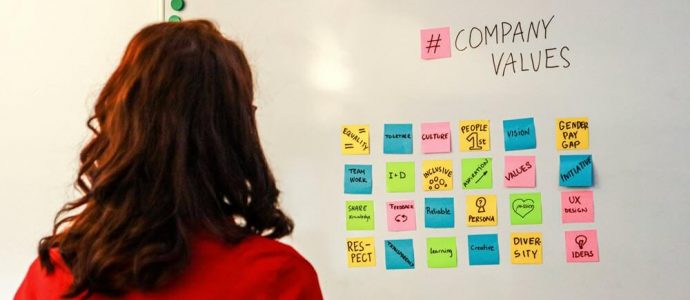BRM Philosophy
BRM as a Philosophy widens the lens on BRM and demonstrates that the strategic and tactical skills of BRMs have a broader use in the world at large. Notably, everything from breaking down silos to convergence of ideas can be applied in a bigger, philosophical sense. Ultimately, BRM focuses on the building and fostering of relationships to satisfy personal and organizational purpose.
The Doctor Who Framework for BRMs
BRMs are the quiet invitation to choose what comes next. We help others identify what still serves us and have the courage to release what no longer fits. That’s not abandonment. That’s evolution. Just as the Doctor regenerates into new forms while remaining rooted in timeless values, BRMs help institutions reimagine themselves without losing their purpose. Courage is essential. BRMs must often speak difficult truths, advocate for change, and move forward despite not knowing all the answers. “Courage isn’t just a matter of not being frightened, you know. It’s being afraid and doing what you have to do anyway,” said the Third Doctor.
Business Relationship Managers: Heroes Without Capes
In every organization, there are heroes quietly working behind the scenes to bridge gaps, unite teams, and propel businesses forward — they’re called Business Relationship Managers (BRMs). While they may not wear capes, they lead with heart, strategy, and resilience. As we celebrate National Superhero Day, it is the perfect time to recognize the real-world heroes who are keeping their organization’s mission, vision and values at the forefront of every partnership.
Achieving GOAT Status, Top BRMs
In the world of Business Relationship Management (BRM), excellence is not just an aspiration—it’s a way of life. Top BRMs, those who consistently lead with vision, innovation, and collaboration, are the backbone of successful organizations. These professionals do more than manage relationships; they drive business outcomes, align strategies, and deliver long-term value to business partners.
Speak with Purpose, Partner with Impact
Language is more than just words—it’s a powerful tool that shapes interactions, molds partnerships, and builds trust. Purposeful language reinforces the commitment to collaboration, signaling respect and dedication to long-term success rather than short-term gains. By consciously choosing words that uplift and empower, BRMs can cultivate environments where trust thrives, solutions are co-created, and innovation is driven by shared purpose.
Breaking Silos with Beats: Spotify’s Tribe Framework in Facilitating Cross-Functional Business Relationships -Part 1
In the symphony of modern business, where each department plays a distinct tune, it’s crucial for business and IT executives and senior leaders to conduct an orchestra that harmonizes these tunes into a coherent melody. The Tribe Framework, popularized by Spotify, offers a rhythm to break silos and enhance cross-functional business relationships. In part one of this article, we will explore the members of the Tribe, while part two will explore the application of the methodology.
A Day in the Life of a Business Relationship Manager: Bridging the Gap
Without the BRM capability, organizations often face significant challenges. Miscommunication between IT and business units can lead to misaligned priorities, reactive IT service management, and business partners struggling to navigate IT services effectively. The presence of a BRM changes this dynamic by fostering proactive communication, aligning IT initiatives with business objectives, and ensuring that both sides work collaboratively towards shared goals.
Ensuring Ethical AI
On the onset, we’ve found that it’s virtually impossible to take on the responsibilities of product/project managers while taking into account everything that could have a negative impact or considering potential blind spots. The nature of AI product development and AI project implementation is highly iterative, making highly challenging for PMs who drive these cycles, to also monitor risks, impacts and blind spots.
BRM- New Age or Timeless?
The question of how old or new BRM is becomes irrelevant. What is clear is that IT leaders, along with their teams, need to shift mindsets and behaviours to embrace the collaborative, relationship-focused approach that BRM represents. This is an ongoing effort that requires dedication and a commitment to evolving with the changing times.
Trust, the Invisible Thread
Trust is the foundation for great team effectiveness, but it cannot be dictated….it must grow organically. The most respected leaders are often the ones who are most receptive to this thinking. They build a culture of open dialogue where feedback is a two-way street.
The Impact of the Age of Abundance on Business Relationship Management: Nurturing Purposeful Connections
The Age of Abundance presents a evolutionary era for BRM professionals. By embracing the complexity and abundance of choices, cultivating purposeful relationships, and leveraging the democratization of resources and technology, BRM practitioners can thrive in this new age. Through their strategic guidance, BRM professionals have the potential to shape organizations that harness the richness of abundance to drive growth, create value, and make a positive impact on society at large.
Volunteers Make the World Brighter: April is Volunteer Appreciation Month
As April unfolds, we step into a month dedicated to acknowledging the immeasurable impact of volunteers worldwide. BRM Institute volunteers tirelessly champion the principles of BRM, nurturing a global network of professionals dedicated to strategic partnership and value realization. Volunteer Appreciation Month offers a fitting moment to extend our heartfelt gratitude to these exceptional individuals.
The Organization Culture Matters More Than the Org Chart
While the title doesn’t matter – the work of the BRM needs to be done, regardless of what the role is called within the organization – the Organizational (Org) Chart does. Members of the organization generally look at the Org Chart as a golden document – if they can see who BRMs report to, they have a baseline understanding of the type of work that is required of the position.
Ego vs Relationship-Centered
To be proactive, I chose a relationship centric approach. I created an executive friendly format designed to enhance the client experience. The clarity of the project time frame and the individual staff accountability it conveyed was priceless.
Embracing Risk: Thriving as BRM, Even in Failure
Embrace a Growth Mindset: Adopting a growth mindset is vital to navigate the challenges and setbacks that may arise. View failure as an opportunity for learning and improvement, rather than a reflection of your capabilities as a BRM. Embrace a mindset that pushes you to continuously learn and adapt. We refer to this as, “failing forward”. You’re on a continuous journey, and with a growth mindset, even “failures” are an opportunity to learn and move forward.
Ikigai: Cultivating Balance and Delight in Life and Business
Imagine a secret sauce from Japan that can infuse joy and fulfillment into your life. We’re talking about a concept called Ikigai (say it out loud: “eye-ka-guy”). Reminiscent of a cross-section in a Venn diagram where passion, mission, vocation, and profession all meld, Ikigai is the sweet spot that brings personal happiness and professional elucidation.
When Yoda Was a Business Relationship Manager
I think we are attracted to Business Relationship Management (BRM) for its ability to change the universe. Or at least, our little part of it. The end game of any BRM is to partner strategically with business colleagues to bring about substantial and long lived value. But the universe is a big place and it is hard to mobilize this BRM force of good against the shadowy influence of Suboptimal IT Help (aka the SITH).
Capture the Spirit of Collaboration: International Volunteer Day 2023
Volunteering with BRM Institute is a unique opportunity to make a difference in the business world while enhancing your personal and professional growth. BRM Institute is a community of like-minded professionals who just like you, are passionate about driving value through business relationship management. As a volunteer, you have the opportunity to collaborate with professionals from diverse backgrounds and gain valuable insights into the industry.
Empowering BRMs Using Emotional Intelligence
It’s been observed that the pivotal factor in the personal development of BRMs lies in the profound emphasis on Emotional Intelligence. While technical skills and expertise undoubtedly contribute to BRMs’ achievement, mastery of Emotional Intelligence sets them apart and drives their effectiveness. Emotional Intelligence is the ability to recognize, understand, and manage one’s own emotions and the emotions of others. It involves being aware of emotional cues and using this awareness to navigate interpersonal interactions and relationships effectively.
















